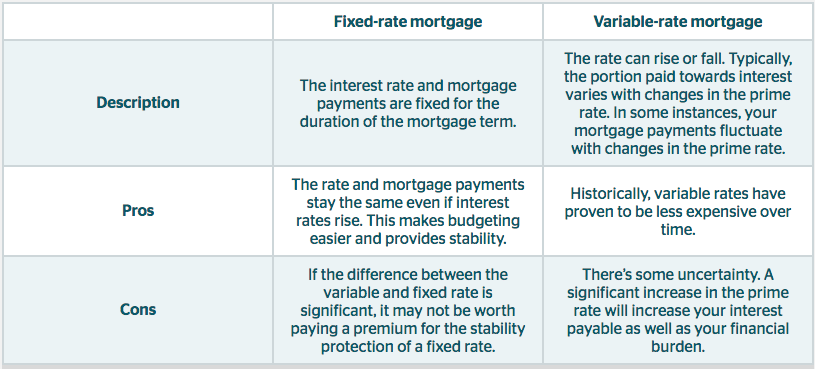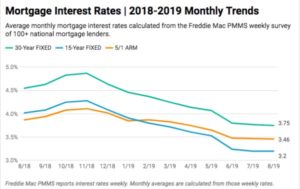And it can supplement your portfolio with distinct advantages http://spencerwvxq059.lowescouponn.com/how-do-buy-to-let-mortgages-work-uk-fundamentals-explained including portfolio diversity, and tax advantages. Regardless of obvious upsides, investing in property can appear intimidating without an obvious beginning point. That does not have to hold true, however. In this article, we discuss the principles of property investing, consisting of eight different manner ins which you can get started immediately.
Property generally breaks down into 4 classifications: residential, commercial, industrial, and land. Residential genuine estate: Residential realty consists of single-family houses, multi-family homes, townhouses, and condos. Occupants might rent or own the homes that they live in. Homes bigger than 4 units are typically thought about industrial residential or commercial property. Commercial realty: Commercial realty is home that is utilized for the purpose of company.
Some examples of industrial real estate properties include workplace (office), dining establishments (retail), and big apartment structures (multi-family). Industrial property: As the name recommends, these residential or commercial properties serve an industrial company function. Some examples include shipping or storage warehouses, factories, and power plants. Land: Land usually consists of undeveloped home with no structures on it.
Landowners can generate income through land use, such as farming, or upon the development or sale of the land. In addition to residential or commercial property types, there are three main ways to make cash from genuine estate financial investments: interest from loans, gratitude, and lease. Interest from Loans (or, in the parlance of property, "debt"): A genuine estate loan is a plan where investors provide money to a property designer and generate income from interest payments on the principal of the loan.
Depending on the number of loan providers, there can be one or a number of kinds of debt within the capital stack of loans. Kinds of debt consist of senior financial obligation, junior financial obligation, and mezzanine debt. Financial obligation can likewise be protected or unsecured. This distinction specifies a financier's rights in case of a residential or commercial property's foreclosure upon the default of a loan.

Our What Percentage Of Mortgages Are Below $700.00 Per Month In The United States Statements
Interest payments might use a way to make passive income from property investments. Gratitude: Just like the ownership of any equity, property ownership provides an investor the ability to make money from the sale of that equity. The gratitude, or increase in the worth of a residential or commercial property with time, represents the possible earnings offered to an investor when that property is offered.
Equity can generally be categorized as favored equity or typical equity. Equity ownership can be an active or passive investment depending on the position of the financial investment within the capital stack. Rent: A property can be leased by owners to make income from rental payments. Just like the earnings created from a financial obligation investment, rental income can provide a regular earnings stream (what are the main types of mortgages).

Rental payments may provide the capacity for passive earnings depending on the investment technique. Each classification of realty and kind of financial investment brings its own set of dangers and benefits. Regardless of how you buy realty, it's essential to pick investments wisely by testing the strengths and weak points of opportunities through a strenuous underwriting procedure.
Many investors like to utilize the projected rate of return as a key metric when examining property. However, more seasoned genuine estate financiers will typically turn to capitalization rate, or "cap rate," as a favored way to assess an opportunity. There are many ways to purchase realty with varying amounts of money, and varying degrees of time dedication, capital, financial investment horizons, risk, and return possible.
Realty investment strategies fall under two groups: active and passive financial investments. Here are eight essential ways to purchase property with techniques varying from intense, high-effort to hands-off, low-effort. Active realty investing necessitates substantial individual understanding of property and hands-on management or delegation of obligations. Active investors can work as investor part-time or full-time, depending upon the variety of their financial investment homes and the nature of those financial investments.
How Much Is Tax On Debt Forgiveness Mortgages Can Be Fun For Anyone
Because of this, active real estate financiers need a deep understanding of how to buy realty, including monetary acumen, and settlement skills to enhance their cap rate and overall return on financial investment. House-flipping is the most active, hands-on method to purchase real estate. In a home flip, a financier purchases a home, makes changes and remodellings to improve its value in the market, and then offers it at a higher rate.
This eats away at their return potential when sirius billing phone number they sell it. Investors can fix or refurbish the house to increase its list price or sell it without making any repair work when its value in the real estate market boosts due to outside elements. If you watch HGTV, then you have actually most likely enjoyed a house get transformed in under thirty best timeshare exit companies minutes and offered for a substantial earnings by house-flipping professionals.
While house-flipping is amazing, it likewise needs deep financial and real estate understanding to make sure that you can make over the home within time and budget plan restrictions to ensure that you earn money when the home is sold. The success and the financial problem of a house flip falls completely on the investor.
It's a high-pressure and high-stakes property financial investment that makes for great TV, but a great financial investment opportunity just for certain educated investors. Another property-flipping strategy is wholesaling. Wholesaling is when a financier signs a contract to purchase a property that they believe is priced listed below market worth and after that sells that contract rapidly to another investor at a higher price for an earnings.
An investor will sign a contract to buy a residential or commercial property and put down an down payment deposit. Then, they quickly try to offer the home to a house-flipper at a premium, earning a revenue. Basically, a wholesaler gets a finder's fee for brokering a house sale to a house-flipper. Nevertheless, unlike traditional home brokers, a wholesaler utilizes their position as the contracted property buyer to broker the offer.
The Best Guide To How To Add Dishcarge Of Mortgages On A Resume
It requires sound due diligence and access to a network of possible buyers in order to sell the property within a short timeframe at a rewarding price. Otherwise, like house-flipping, you run the risk of not making a revenue or, worse, losing money. Rental properties need hands-on management, too, however they have a long-term investment horizon.
Homeowner earn regular money flow typically on a regular monthly basis in the form of rental payments from occupants. This can supply a constant, dependable earnings stream for investors, but it likewise requires a lot of work or delegation of duties to guarantee that operations run efficiently. Initially, you must discover tenants for your property.
You are likewise accountable for carrying out background screenings for prospective renters (if you pick to) and for supplying legally sound lease contract contracts to occupants. For each month that you do not have a tenant, you lose out on earnings from your financial investment. Once you have tenants, you have a fair bit more resultant duties.